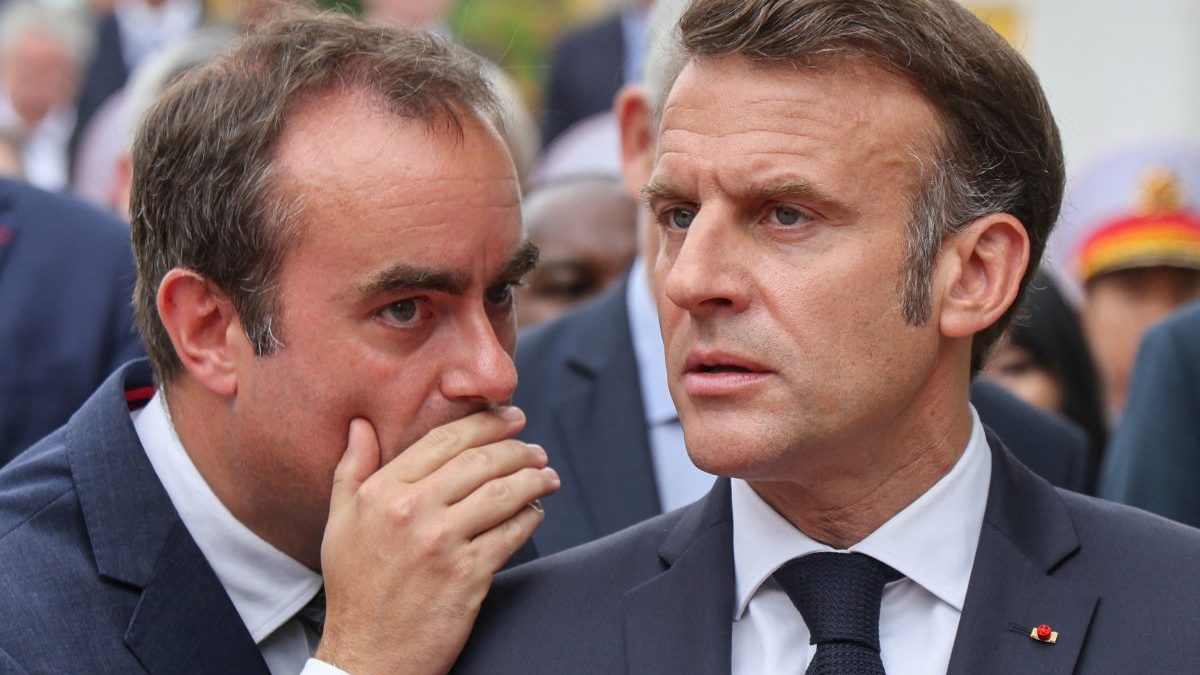
French President Emmanuel Macron is facing yet another crisis after Sébastien Lecornu’s exit – and it could directly affect Britain
French Prime Minister Sébastien Lecornu resigned on Monday, less than a month after his appointment, plunging President Emmanuel Macron’s already fragile Government into fresh uncertainty.
Macron, who vowed to unite France, may try to appoint another premier, but analysts say any new government will face the same gridlock.
Some are calling for the dissolution of parliament and fresh elections — a move that could strengthen the far right.
It is another chip in Macron’s already waning authority, and could have serious ramifications for the UK.
Effectively a lame duck president with 18 months left in his term of office, Macron’s rash gamble to dissolve the National Assembly last June merely accelerated turmoil in France’s divided politics.
It also matters beyond Paris. The Franco-German partnership is the engine of European integration, and when it comes to defence, only Britain has an equivalent military capability within Europe.
London and Paris have in recent years drawn closer on defence. Macron is the co-leader, with Keir Starmer, of the informal alliance behind Ukraine.
If political paralysis in Paris delays the promised rise in French military spending, that will complicate the Anglo-French bargain that underpins European security at a time of Russian aggression and doubts about Washington’s commitment.
Lecornu, 39, handed in his resignation early Monday morning, just 12 hours after announcing his new cabinet. His government, which included several returning ministers from previous Macron administrations, had faced an immediate backlash from opposition parties and internal divisions within the French President’s centrist alliance, who complained that he was simply bringing back holdovers from the last government.
“You can’t be prime minister when the conditions are not met,” Lecornu said in a statement outside the Hôtel de Matignon. He said he had tried to build a coalition capable of passing a new budget but was blocked by what he called “partisan appetites” ahead of the 2027 presidential election.
Lecornu’s departure after just 27 days makes him the most short-lived prime minister in the history of the Fifth Republic. It also leaves Macron scrambling to find yet another head of government – his sixth since being re-elected in 2022 – to lead a parliament that has been deadlocked since last year’s snap legislative elections.
The resignation followed a weekend of tense negotiations and growing dissent among the conservatives in Les Républicains, who had demanded more cabinet positions and firmer promises on immigration policy. Opposition parties from both the left and the far right had threatened immediate votes of no confidence once parliament reconvened.
The crisis adds to growing pressure on Macron, who has struggled to maintain control over domestic politics since losing his parliamentary majority in 2024. Some opposition leaders, including far-right leader Marine Le Pen and the radical left’s Jean-Luc Mélenchon, have called for new elections or even Macron’s resignation.
Financial markets reacted nervously to the news. The CAC 40 index fell by around two per cent, and French Government bond yields rose close to Italian levels. France’s debt, already at 113 per cent of GDP, was downgraded by the Fitch rating agency last month amid concerns about political instability and budget deficits.
Lecornu, a close Macron ally who previously served as defence minister, was tapped last month after the fall of Prime Minister François Bayrou’s Government. He had promised a break with the more antagonistic Bayrou in his dealings with the opposition, deliberately taking his time in naming a cabinet while consulting key rivals, such as Socialist leader Olivier Faure. Seen as loyal and pragmatic, Lecornu had been expected to bring calm to the political turbulence. Instead, his exit has deepened the sense of crisis around the presidency.
For now, France is left without a functioning government, recalling the instability of the Fourth Republic, which lasted from the end of the Second World War until Charles de Gaulle’s 1958 constitution. As for Macron’s promise of decisive power, it looks more fragile than ever.
